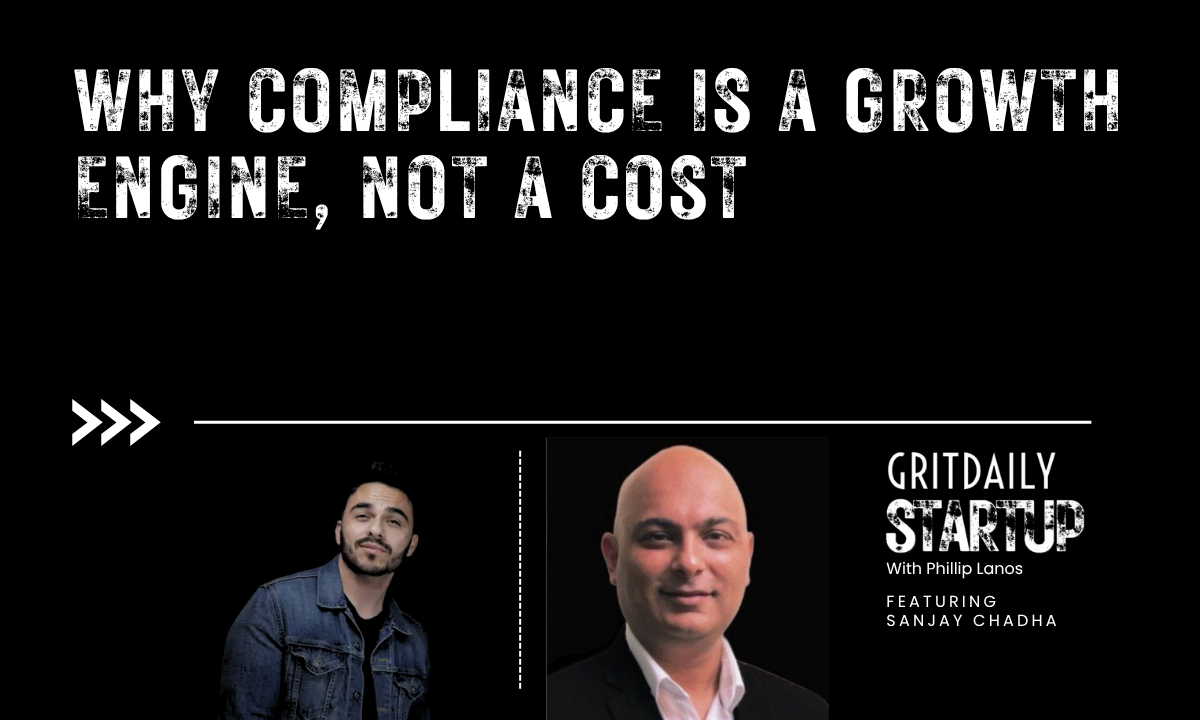Startups thrive on momentum. They build fast, iterate quickly, and chase their first enterprise deal with urgency. But while most founders obsess over product, sales, or fundraising, far fewer pay attention to the one factor that determines whether an enterprise will ever take them seriously: trust. For Sanjay Chadha, Managing Partner of Toronto-based SAV Associates, that’s the real difference between startups that scale and startups that stall.
Chadha has spent more than two decades in the world of enterprise risk, cybersecurity, internal controls, and governance. And he has watched the same scenario unfold repeatedly: a brilliant product, a hungry team, and a startup blocked from closing a deal because it cannot demonstrate the basic security posture a large organization requires. In a landscape where a single breach can hit the front page of the Wall Street Journal within hours, no big company can onboard a vendor that treats cybersecurity as an afterthought.
That’s why, Chadha argues, startups must stop thinking of themselves as small. “The moment you become a vendor to an enterprise,” he explains, “you become an extension of that enterprise.” That mental shift, seeing your two-person startup as a department inside a Fortune 500 company, changes everything. It forces founders to consider the risk they represent, the data they touch, and the systems they integrate with. Security isn’t optional. It’s a prerequisite for trust.
This is where SOC 2 and ISO 27001 enter the picture. Though often misunderstood as compliance checkboxes, they are, in reality, the clearest way a startup can prove it is ready to operate at enterprise scale. SOC 2, widely used in North America, evaluates governance, IT controls, risk management, security operations, change management, and more. ISO 27001, the global gold standard, follows a stricter, more regimented framework where requirements are binary: you have them or you don’t.
For founders who have never navigated large-enterprise procurement, these reports become a passport. They reduce friction, collapse onboarding timelines, and provide quantifiable assurance that a startup can be trusted with customer data, proprietary systems, intellectual property, and high-stakes transactions. They also protect the founders themselves. In a world where one wrong answer on a security questionnaire can trigger personal liability, accurate documentation matters.
But compliance isn’t simply paperwork. It’s a mindset. Chadha is quick to emphasize that the biggest mistake startups make is treating compliance as an IT task. “It is not an IT problem,” he explains. “It is an enterprise-wide issue. Culture flows from the top.” A CTO cannot carry the burden alone. The CEO, the CFO, and the board must treat compliance as part of their growth strategy, not a side project.
This perspective becomes even more important when considering the velocity of emerging threats. Social engineering, deepfake CEO calls, fraudulent emails disguised through pixel-perfect domain spoofing, all of these have already cost businesses millions. A single ex-employee with unrevoked access can create a backdoor that cripples the company. AI-driven attacks compress risk into milliseconds. Defense now requires layers: authentication, authorization, encryption, SOC monitoring, offboarding protocols, access controls, and training.
And yet, Chadha is not alarmist. His message is practical: most startups already use AWS, Azure, and GCP — platforms with world-class security baked in. The real failure is misconfiguration. Tools exist. Protocols exist. The danger comes from neglecting them.
When compliance is done well, the impact is transformative. Chadha has watched founders jump from chasing small clients to landing hospitals, financial institutions, and global enterprises after securing SOC 2 or ISO certification. He has seen startups 10x their customer base in a year after strengthening their posture. Compliance becomes a competitive advantage, not because it checks a box, but because it removes every objection standing between a startup and its biggest potential customers.
Founders dream of unicorn futures, but few prepare like enterprises. Chadha’s work reveals a simple truth: scale requires structure. Governance protects the product, the data, the team, and the mission. And in an age where risk multiplies every hour, trust is the most valuable currency a startup can build.
Want more Grit Daily Startup Show? Take a look at past articles, head over to YouTube, or listen on Apple Podcasts or Spotify.


